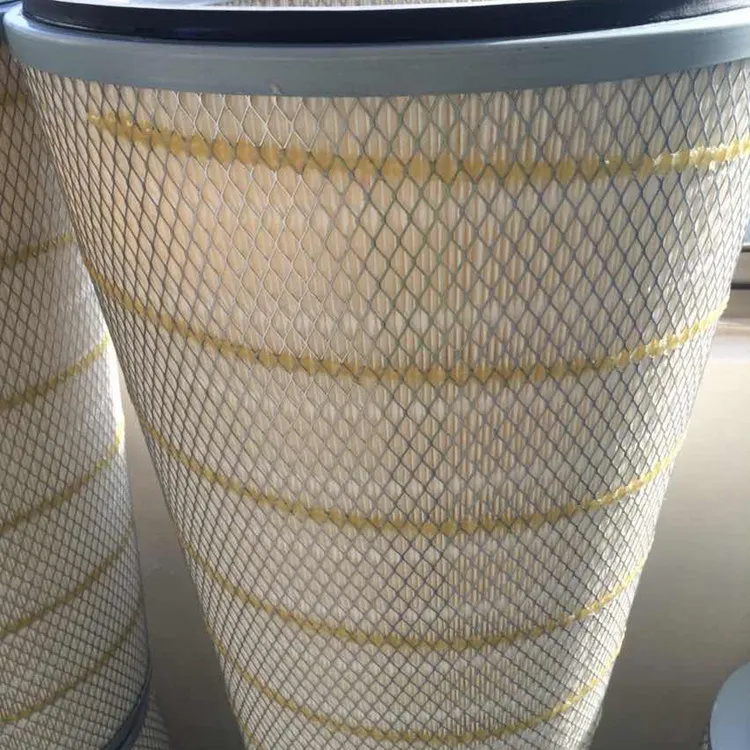 Tel:
+8615930870079
Tel:
+8615930870079
Nov . 13, 2024 15:48 Back to list
gas turbine inlet filter
The Importance of Gas Turbine Inlet Filters
Gas turbines are a pivotal technology in the generation of electric power and in various industrial applications. Their efficiency and reliability largely depend on the quality of the air supplied to the turbine. This is where gas turbine inlet filters come into play. They serve a crucial role in ensuring that the air entering the turbine remains clean and free from contaminants that could compromise performance and longevity.
Understanding Gas Turbine Inlet Filters
Gas turbine inlet filters are designed to remove particles from the air before it reaches the turbine. These particles can include dust, dirt, pollen, and other particulate matter that can negatively affect turbine efficiency. The filters work by utilizing various filtration technologies, such as mechanical filtration, electrostatic precipitation, and absorbent materials that capture particulate matter.
Inlet filters are essential for all types of gas turbines, from small units used in industrial applications to large gas-fired power plants. The challenge is to balance filtration efficiency with airflow resistance. High-efficiency filters may provide superior protection but can also restrict airflow, leading to a reduction in turbine performance. Therefore, manufacturers focus on designing filters that maximize particulate removal while minimizing pressure drop.
The Impact of Contaminants
Unfiltered or poorly filtered air can lead to significant issues in gas turbines. Contaminants can cause corrosion, erosion, and fouling of components, leading to decreased efficiency and increased maintenance costs. For example, dust and sand can create an abrasive environment that wears down blades and other critical turbine parts. Similarly, the accumulation of particulates can lead to fouling of heat exchangers, reducing their thermal efficiency.
Moreover, contaminants can influence the combustion process, leading to incomplete combustion, increased emissions, and potential damage to the turbine. This not only poses operational risks but also results in higher greenhouse gas emissions, counteracting efforts to make power generation cleaner and more sustainable.
gas turbine inlet filter

Operational Efficiency and Longevity
By investing in quality inlet filters, operators can enhance the overall efficiency and longevity of gas turbines. A well-maintained filtration system can ensure optimal airflow and reduce the risk of unexpected downtime, which is critical for maintaining a reliable power supply. This is particularly important in industries where operational stability is crucial, such as aviation, maritime, and power generation.
Regular maintenance and timely replacement of gas turbine inlet filters are necessary to maximize their effectiveness. Operators must monitor air quality, filter performance, and pressure drop readings to determine when filters need servicing. Failure to maintain filters can lead to increased operating costs and decreased system efficiency.
Advancements in Filter Technology
In recent years, there have been advancements in gas turbine inlet filter technology aimed at improving filtration efficiency while maintaining airflow performance. Innovations such as nanofiber filtration media, advanced synthetic materials, and smart monitoring systems are driving the evolution of filtration solutions. These advancements not only enhance contaminant capture but also extend filter life, making them a more cost-effective choice for operators.
Additionally, some manufacturers are developing filters integrated with real-time monitoring systems that provide data on filter performance and air quality. This data-driven approach allows operators to make informed decisions about maintenance and replacement, thereby optimizing turbine performance and reducing operational risks.
Conclusion
In summary, gas turbine inlet filters are a vital component in the overall performance and longevity of gas turbines. They play an essential role in ensuring that the air supplied to the turbine remains clean, which directly impacts efficiency, operational costs, and environmental compliance. With continued advancements in filtration technology, operators can look forward to enhanced performance and reliability from their gas turbine systems, ensuring a more sustainable energy future.
-
Types and Applications of Air Filtration CartridgesNewsJul.28,2025
-
The Role of Gas Turbine FiltersNewsJul.28,2025
-
Mastering Air Filter Cartridge UseNewsJul.28,2025
-
Advanced Turbine Filters for Modern Gas TurbinesNewsJul.28,2025
-
Cellulose Air Filter Cartridge Advantages in Dust FiltrationNewsJul.28,2025
-
Cellulose Filters for Air Particle ReductionNewsJul.28,2025

 Email:
Email:





